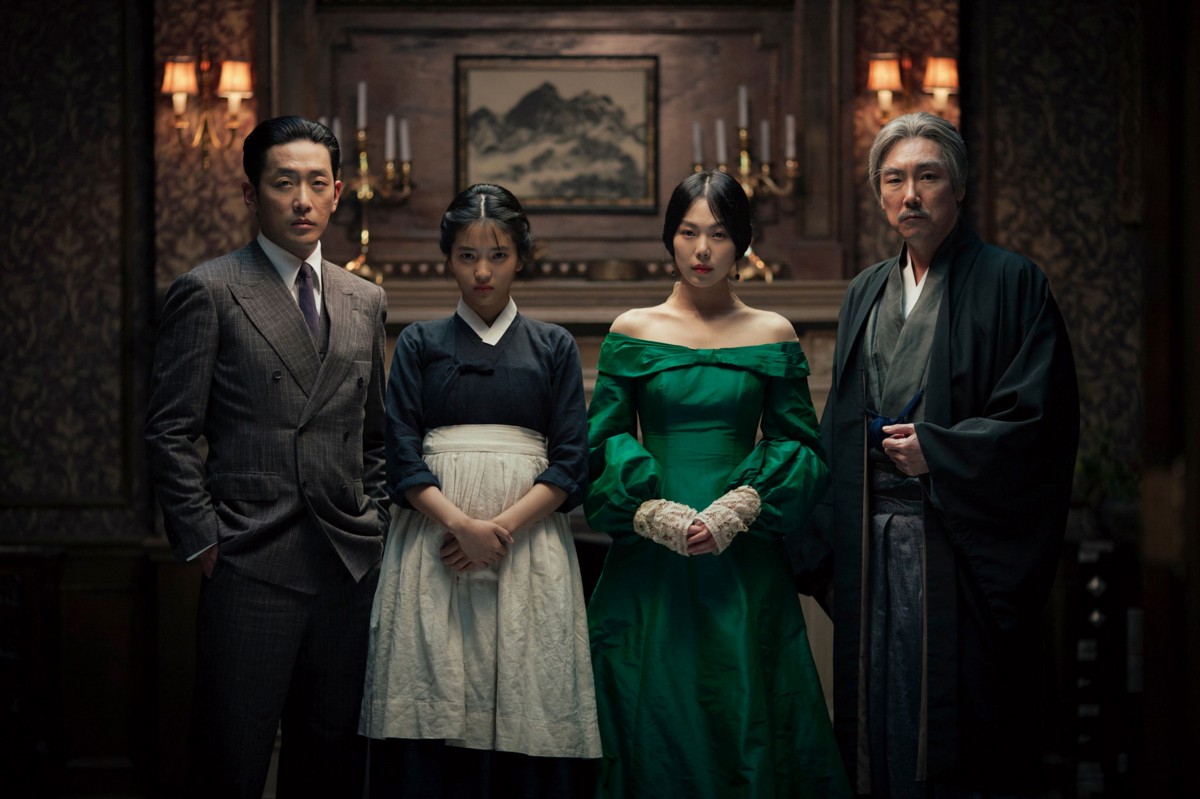For a brief time, the Bryn Mawr Film Institute was showing The Handmaiden (2016) by (one of my favorite directors) Park Chan-wook, who is known for Oldboy (2003)! Based on the novel Fingersmith by Sarah Waters, the film is set in 1930s Korea, during Japanese colonial rule. Structured in three parts, the film revolves around the deception of different characters and Japanese eroticism.
The story begins when Sookee, a young Korean pickpocket, is recruited by Count Fujiwara, a Korean conman, to be Lady Hideko’s handmaiden and persuade Lady Hideko to marry the Count for her fortune. A Japanese heiress, Lady Hideko’s money is controlled by her uncle Kouzuki, who plans to marry her when she is of age in order to gain her fortune and her body. However, with the three part structure, the film becomes more complex as each part reveals a different perspective and deception as Sookee and Lady Hideko become romantically involved.

Promotional photo of The Handmaiden (2016)
Much like the other films from director Park Chan-wook, the film The Handmaiden follows the auteur’s style of violence combined with a disturbing plot and paired with beautiful shots and sets. The most disturbing element in the film is the use of female eroticism. Throughout The Handmaiden, the body of Lady Hideko is seen as a space that men can manipulate through marriage as well as through readings of erotic Japanese literature. While the director highlights the folly of the grotesque nature of heterosexual men’s obsession with the female body, mainly through the portrayal of Uncle Kouzuki, the film also allows Lady Hideko to escape the erotics projected on to her through her relationship with Sookee. The lesbian relationship allows Lady Hideko to subvert the male obsession with the female body as no man within the film actually got to claim her body through sex. Yet, as the two woman escape the imposition of an erotic gaze, the film ends with a sex scene between Sookee and Lady Hideko that reflects some of the same erotic images of lesbian sex seen in the Japanese erotic literature Lady Hideko is forced to read.
In The Handmaiden as with other films by Park Chan-wook, the ending of the film is not an ending but a complex continuation of the issues addressed in the film. The viewer leaves the film disturbed, intrigued, and contemplative as the film persuades the audience to think more about what they just saw.
